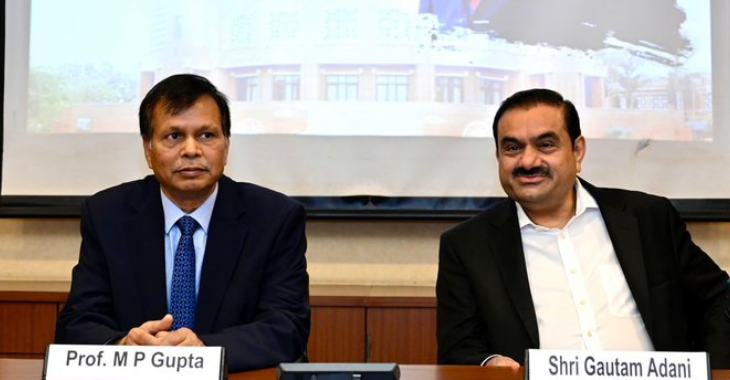Adani Group Chairman Gautam Adani talked extensively about the wave of international criticism and concerted opposition his group encountered over the Carmichael coal project in Australia in one of his most open public statements to date.
The Adani Group Chairman, speaking to academics and students at the Indian Institute of Management in Lucknow on Thursday, called the ten-year struggle to carry out the contentious project a “defining test of resilience” that changed not only a business but also a person.
Gautam Adani paused before continuing, “In Australia, the international media made us villains,” before stating, “Banks walked away.” Insurance companies wouldn’t support us. Roads were blocked by activists. Cases were filed. We were criticized in headlines, argued in parliaments, and accused in courtrooms. On the ground, our personnel were harassed. They questioned our right to live on that land. The message was evident everywhere we looked: back down.
No, he didn’t.
The environmental impact of the Carmichael mine, a topic that still divides people, was not intended to be sanitized in Gautam Adani’s retelling of the story. Rather, he presented it as a strategic and moral decision. It is a monument to energy security rather than coal, as some have claimed. It is a national necessity rather than a business luxury. “It was not born out of ambition for coal,” he stated. It was created as a result of the need to supply India with higher-quality coal. It was created as a result of the need to safeguard India’s energy independence and lower carbon emissions.
The project’s timing and location were what made it so politically sensitive. In the face of organized, international environmental opposition, an Indian corporation was seeking to construct one of its largest energy projects in one of the world’s most strictly regulated democracies. “In Australia, we lacked political capital. absence of historical presence. no backing from the institution. But we didn’t back down,” he remarked.
Gautam Adani’s comments coincide with a revived international focus on India’s energy plan, which is torn between the country’s long-term coal-dependent base load and pressure to speed up its renewable transition. His remarks regarding the Australia incident helped to highlight a broader theme that pervaded his speech: that fearless leadership frequently attracts opposition, and that conviction without consolation is a prerequisite for lasting influence.
After starting out as a bold gamble, the Carmichael project has developed into an important geopolitical and economic Indo-Australian corridor. According to the head of the Adani Group, the project now uses cleaner coal to power industries, provides employment for thousands of people in Australia, and demonstrates the company’s reluctance to give in to outside pressure. He explained that it was a tale about perseverance rather than fossil fuels.
Delivered with emotional clarity and precision, the speech was a break from the usual lectures of business school. No charts, no slides, and no hedges were present. Gautam Adani, on the other hand, presented an unscripted personal philosophy based on disobedience, belief, and risk. He informed the pupils that the future cannot be shaped by commercial structures alone. He asserted that even if the world pushes back, those who are prepared to create maps where none now exist would shape the future.
There was no corporate bravado to this disobedience. It was set against the backdrop of more significant and challenging issues, such as leadership in a world where it is becoming more difficult to distinguish between global governance and ideological activism, emerging economies’ claimed right to pursue development on their own terms, and the high personal costs associated with long-term vision.
Throughout his speech, Gautam Adani reiterated the notion that extraordinary results necessitate extraordinary perseverance and resolve. “The easy road rarely builds lives worth remembering,” he said to the pupils. “It is the bold path — the one filled with risk and resistance – that shapes leaders the world remembers.”
His description of Australia served as a warning as well, serving as a reminder that nowadays, disturbance is rarely praised. Such decisions are frequently only recognized in hindsight as courageous, imaginative, and nation-building deeds.
The chairman of the Adani Group did not try to present the past as flawless or the future as certain as he concluded his remarks. Rather, he challenged the kids to face discomfort, embrace adversity, and realize that greatness is not the lack of hardship but the ability to master it.
“Let your journey be the evidence” , he continued, “that dreams rooted in Indian soil can stand firm, even when the world tries to push them down.”
Read More
The significance of the sixth round of India-US negotiations on August 25 Morgan Stanley
PM Modi to inaugurate Kartavya Bhavan today at Kartavya Path


